Hanoiachi, the rising R&B sensation, is a multitalented artist who has a diverse range of musical expertise, including pop, jazz, classical, and electronic music. Hailing from the Philippines, she has been honing her craft since the tender age of twelve, and her passion for music has only intensified with time. As a prolific creator, she has seamlessly transitioned into various roles, including producer, rapper, and singer-songwriter. Currently signed to the independent record label Luna Records, Hanoiachi is among the label’s talented artists who receive proper management and support to reach their full potential.
- What inspired you to pursue a career in music, and when did you first realize that it was your calling?
Hanoiachi: It would be the underlying impact that I could provide for the new flow of aspiring artists; I’ve always been influenced by the idea to enhance the drive of my passion to inspire other people too, not just musicians, in a sense that they should be relishing the thought that music may be more than a leisure and pastime — it’s primarily an aspect of life as everyone would try to perceive it. Frankly, my calling was this overall, fluctuating, and euphoric portrayal of self-dedication I have put myself into. As I could comprehend, that my revelation of being in search to thrive in an industry so callous and cutthroat, I educated myself to be full-bodied with whatever criticisms or insults are thrown at me. It’s a calling for “transformation” and I’ve been engaged with it ever since.
2. For most artists, originality is first preceded by a phase of learning and, often, emulating others. What was this like for you? How would you describe your own development as an artist and music maker and the transition towards your own style?
Hanoiachi: If I can define originality, it’s simply in conjunction with identity and all its ordeals that seem to either evolve or remain stagnant no matter what your choice is. Finding my own proper stylistic remedy was quite the hassle. I switched from distinct yet diverse genres altogether, seemingly circulating kinds of music that bear significance to me, though had an impact on results later on; I was brought into this kind of shortage of independence or freedom to do so and my anxiousness got a hold of me. My own development as an artist was not a painless road of where the wind would take you — it’s a grueling journey full of passion and spite for certain elements in what you want to compose and build upon. As a music maker, the transition towards a new style was a definite hurdle, and at the same time, a fearless leap to my soon-to-be success.
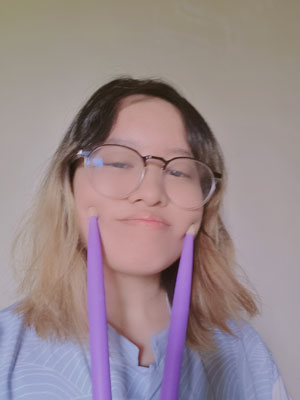
3. As a self-produced artist, what is your creative process like, and how do you ensure that your vision is fully realized in your music?
Hanoiachi: My creative process is really dependent on my mood, or the ambient factors that I try to enhance. For example, if I were to come up with a theme or a story-telling apparatus, I usually start with that and then initiate the rest of my imagination — either in a vivid or ambiguous logic. Then to ensure that my vision is precise as ever to be realized, I ensure that I implement my stylistic preferences of sound and tonality (a signature element wherein people would recognize that I created the composition and that it all reverts back to me).
4. What is your proudest achievement as a musician thus far, and what goals do you still hope to accomplish in your career?
Hanoiachi: Well, I started achieving more recognition and my music has initiated to be respected and relished by various listeners worldwide — and this made me quite over-emotional and mostly effusive with my efforts finally yielding with importance to me to keep striving and completing my objectives to be familiarized to a certain degree. The other goals I wish to accomplish in my career are to probably get the credentials or an award for me to achieve and to become a symbol of my own exertions. I yearn to be able to acquire the opportunity to maintain myself on stage, in bigger stadiums as well not just to impress my family or acquaintances, but to feel more “uproarious” than ever because I’m doing something powerful and inspiring to the perspectives of many. But most of all, I have this desire to keep making music even if I’ve retired, since it has always been my starting ground and the basis of my individuality.
5. Your debut single “What We Had” showcases your exceptional production skills. Can you walk us through the process of creating this track, and what inspired it?
Hanoiachi: The process of creating this track was very endearing to me. I had a more prolific artist assist me in venturing out of my comfort zone, therefore risking any fastidious chance of failure that pins upon it. The inspiration was specifically about a heartbreaking “what if” but what if this certain drabble was ensnared into some kind of “empowerment”. I pictured a sense of sadness and anger being transformed into this facet of empowerment that just becomes so swaying in the piece “What We Had” because it amplified raw emotion that just bellows out its realism. Overall, I just craved to portray that strong sentiments deserved to be listened to and felt with the same aspect of control.
6. Your latest EP, “Unravel Me,” is a beautiful and introspective work that blends personal experiences with universal themes. How did you approach writing and recording this project, and what did you hope to achieve with it?
Hanoiachi: It was a very heartbreakingly detailed process: I inscribed on many sheets of paper how my lyricism would have been depicted to be but at some threshold of disappointment, I came to the conclusion that I needed help for it, some sort of collaborative effort. When it came to the combination of many elements and themes I approached, I was baffled by the multiple ideas that came to mind. I approached my writing sensibly and carefully, and to be more efficient in trying to portray my feelings with precision and authenticity. Hoping to achieve not just exposure and reputation, but “connections” with a particular audience and encapsulate the meaning of interpretation. Variation is the key when it comes to achieving different results, and in each sound in my album, everything seemed to fall in place and mold itself into uniqueness.
7. Your vocals have been praised for their unique and captivating quality. How did you develop your singing style, and who are some of your biggest vocal inspirations?
Hanoiachi: I developed this singing style through various vocal lessons and the endless, strenuous burdens of persisting for twenty-four hours or more just to gain an outstanding vocal capability or capacity. Moments of disruption (for example, workload and overwrought leisures) have impeded my sense of unique abilities of musicality, though I was able to truthfully gain insights from other artists by listening to the texture, fervency, and techniques they implement whilst performing. My biggest vocal inspirations would be Rosé (Roseanne Park) from BlackPink because of her unusual tone that became ubiquitous to those who admire her and Kali Uchis (Karly-Marina Loaiza) as well because of her mesmerizing manner of enunciating her lyricism through music. These vocal inspirations of mine have had an impact on me to be comfortable with my own sound which is both foreign yet influential to countless audiences who are enchanted by the sound. I guess it’s all about embracing your own sound in order to evolve as a particular artist who yearns to be heard for so much more.
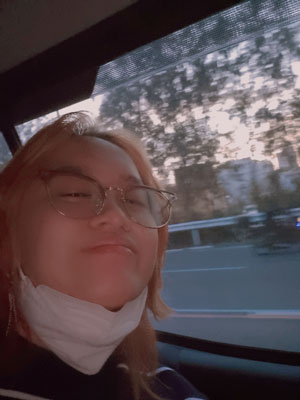
8. As a rising R&B artist, how do you stay true to the genre’s roots while also innovating and pushing its boundaries forward?
Hanoiachi: I don’t stray away from the inherent nature or essence of the said genre because it would turn out to be a weak interpretation of its importance. RnB is a very profound category in music that stumbles upon “depth” and the “abysm” of your true intentions and feelings. The drums that back up the melodies for staggering support, portray strength and stability, whilst the vocals that usually accompany the experience drive the potentiality of the track to become even more resonant than ever. I yearn to push its boundaries by encapsulating different sounds that have been done already but assembling them in a way of a unique variation to its manner. So, to crave new, exploratory, or experimental sounds would be on my mind almost every occurrence in the production of music.
9. Can you tell us about your experience being signed to Luna Records, and how has their support helped you in your career?
Hanoiachi: I joined Luna Records last year, hoping that somehow I’d fail along the way even though they were such an enormous aid to my well-being and capabilities. My evolution from a Lofi indie artist to a new, slightly well-recognized Rnb musician has led me to reach a couple of breakthroughs, somewhat. Their support has bedazzled me ever since, with their artists thriving to present themselves as hardworking individuals who implement their own identity and appreciation for music. That’s one of the sole reasons why I chose to remain ever since I lingered for the very first time and enjoyed their company: the values and passions that the label provided for me were enough for the journey of self-prominence.
10. What do you feel are the key elements in your music that should resonate with listeners?
Hanoiachi: I learned from exceptional educators about three characteristics that you should look out for in music that I let myself be subjugated underneath: melody, harmony, and rhythm. These three facets are firmly intertwined with one another. Personally, what hooks an audience would be the very, ultimatum of facets: melody. Because with this certain element, everything else falls into place, according to creative direction and presentation. Harmony is mostly ensnared by the melody as it attempts to be its support to be relied on, for the listeners to grasp the depth of their relationship with one another. Lastly, rhythm can delineate the flow of the composition, if the cadence would be sluggish or swift in motion, with patterns and overall imprinted spectrums of beats given emphasis. If you collect them all together and know what you’re doing, then your comprehension of a piece would seem to trace a more vivid sense or belief of recreation — that something so leisurely can turn out to be more about emotive awareness.
11. Your music has a strong emotional depth and vulnerability. How do you balance expressing yourself through your art while also maintaining a sense of privacy and self-protection?
Hanoiachi: It comes off as a self-regard for gaining the illusion that there should be a slight disparity between these two facets: privacy is all about self-reflection and creative expression is all about the experience — and most of the time these two work hand in hand in order to gain an incentive for some endeavor. I could maintain this through the act of “accountability”, meaning that I’m not anxious about whatever pursuit I chase after, because I am firmly wrapped around by the ideology that art would pertain to releasing your inner abnormality, and that this oddity can be perceived as different yet beautiful. Self-protection comes with being in precarious situations and knowing how to accommodate those around you by being wise, and meticulously loving to yourself as much as possible.
12. You have experience working in multiple roles as a producer, rapper, and singer-songwriter. Do you have a preference for any particular role, and how do you approach each of these roles differently in your music-making process?
Hanoiachi: For each of these functions, I position myself in different stances, of which I bear differences, or the said calling for diversity. As a producer, I take in the elements (drums, piano, guitar, and bass for the most part) and craft them all together with time and precision. As a rapper, I become even more thorough and careful with my choices of words and have observed the remarks I give to myself in order to heighten my capabilities during the process. Now, when it’s becoming a “supremely” effective singer-songwriter, I practice and practice, so, a reduplication of what has been done can make a composition sound more in-depth and full of improvement than before. If refinements come off as easy to you, efforts have to be on the brink of dissipation — because refinements have to be modified in a very painstaking way. Unfortunately, I’ve learned it in the most difficult approach, but it got me to where I am at the moment.
13. What has been your biggest challenge as an artist, and how did you overcome it?
Hanoiachi: My most notable challenge as an artist is trying to achieve exposure and preserve genuine craftsmanship. Meaning, at some point in my life I tend to pull myself down with the sheer force of negativity because of my perfectionist front. It’s difficult to maintain a sense of identity for a while since in the music industry, most of an artist’s audience lingers, in a fleeting masquerade, in the dimensions of general satisfaction or instant gratification, to say the least. It was a burden for me to carry, the way my mindset would spiral out of control. I overpowered the biggest challenge of my life by devoting myself to deep development and yearning to gather such growth for not just me, but the people surrounding me eventually.
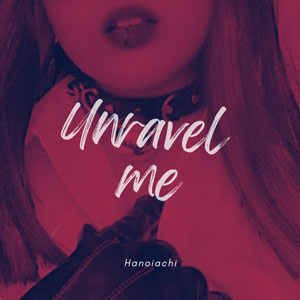
14. Do you write a song with current musical trends, formulas, or listener satisfaction in mind, or do you simply focus on your own personal vision and trust that people will empathize and vibe with your sound?
Hanoiachi: I do have, in a sense, musical formulas that I abide by. Specifically, music theory has always given me a powerful direction to how the styles and genres clash with one another. It’s also about the empathy that individuals try to garner for them to relate to the composition and its theme. If I take into consideration each sound and each croon that intertwines with each other, then I mostly turn to societal display, but at the same time not straining myself to lose my overall self-individuality. I envision my song to be not just based on melody alone or in solitary rhythm — but it also pertains to the impact it can deliver to various audiences. Music is eclectic, and its elements are marked to support it with fine consideration.
15. As a Filipino artist, how has your cultural background influenced your music, and what impact do you hope to have on the Filipino music scene?
Hanoiachi: As a Filipino artist, I take on aspirations and influences that have taken a toll on me, as well as the ones identified ever since, toward my motherland. Historically speaking, Filipino music is engraved into the rather “intrinsic roots” of European and Western origins — so no wonder my music has branched out to different countries because, in all honesty, anything that’s out of the ordinary and all irregularly pleasing could be in the perception of aesthetics and also volume, even if it doesn’t capture the attention of the masses. I hope to have this significant impact on the Filipino music scene and sway their pessimistic thoughts away about unusual genres it never embarked on before.
16. How involved are you in the creative direction of your compositions, and what do you hope to convey through them?
Hanoiachi: I actually believe in the whole process of preparation up to elaboration. It’s like an enlightenment phase wherein, the procedure is just out of being appealing to myself, and at the same time, it’s efficient for me to define. I follow several philosophies and principles that can shape my stature as an artist, gaining various insights for much-needed inspiration; the flow of my pieces would be accustomed to my selections and intuitions and I hope to comprehend much more of the vision I had in mine.
17. Creative work in the studio environment, or interaction with a live audience? Which of these two options excites you most, and why?
Hanoiachi: Creative work in the studio environment seems to stimulate my excitement more. I guess it could be that mindset of labor and vision that I tend to mix up into a divine intervention with creativity. Though performances are associated with ideal renditions, I find myself getting involved with a certain discretion — an anxious feeling wherein I get this kind of debilitated state to stray away from the stage or the spotlight in general. Most of the time I turn and cave into the importance of my ingenuity in inventing my music or the renditions that encapsulate it.
18. Can you tell us about any upcoming projects or collaborations that you’re excited about?
Hanoiachi: I worked on numerous projects and planned on collaborating with various artists in the label I preside in. Sometime in March, my newest RnB single will be out to premiere, and possibly at a later date, another album might be disseminated soon enough. I’m thoroughly ecstatic about collaborating with various producers, singer-songwriters, rappers, and engineers to perfect my projects as meticulously as a conceivable goal. Mainly, I’ll be concentrating on deeper aspects of what I usually do, surrounding more with the facets of heartbreak, love, self-love, and innumerable themes to take into account. So far, I’ve become so enthusiastic to represent myself in another unique glow.
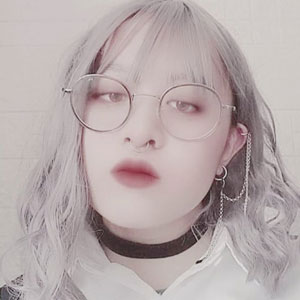
19. Do you have a favorite motto, phrase, or piece of advice, you try to live or inspire yourself by?
Hanoiachi: I have one; it’s a quote I actually inscribed back when I was in deep depression and would always jot down my inferior thoughts on a sheet of paper: “When your sentiments, whether detestable or euphoric to sense, submerge you into this void of sadness, don’t cower from those because they are valued, they are adored, and they are impassioned by yourself as a human being full of creative inventions within the mind to depict.”
20. Lastly, what is your ultimate goal as an artist, and what legacy do you hope to leave behind through your music?
Hanoiachi: My ultimate ambition as an artist is to be a superb inspiration and paragon to multiple artists who are just beginning to figure out their own identity, importance, and value in the world. I yearn to be a comfort haven (mainly, a safe space) for a forthcoming audience to take a pause and attend to what I have to represent — not just depict what I truly need to portray, but what lies underneath that narrative to become favored by my growth and reasoning. A legacy that I’d like to leave behind through my music is the impact I’ve endowed that people would sense when it comes to the feelings they’ve suppressed and never offered into the limelight. Regarding the whole initiatives I’ve affirmed, I do wish I can continue to progress at a tangible yet unhurried pace for my own well-being.
OFFICIAL LINKS:
Instagram: hanoiachi_official
Youtube: Hanoiachi_Official
Bandlab: Jamsus
Tiktok: hanoiachi_official






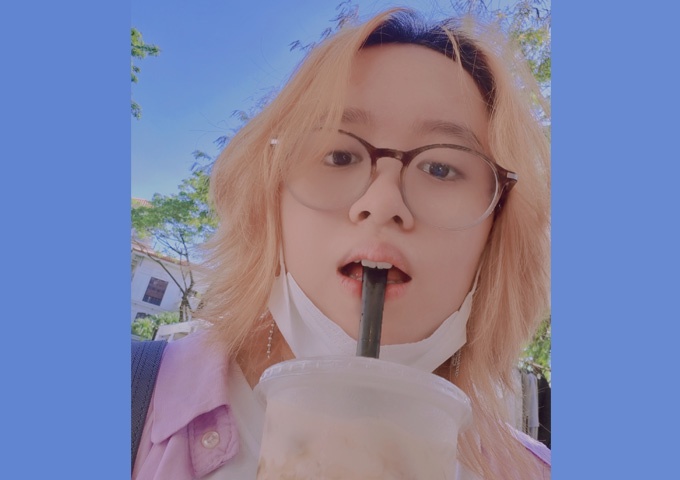


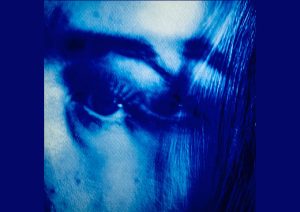

More Stories
“Hay Zeus”, Heavy History: Ty Bru on Legacy, Layers, and Letting Go at 20 Years of MTTS
The Cosmic Factory on 15 Years of Psychedelic Alchemy and the Making of ‘Lab Grown’
Detroit Soul, Modern R&B Elegance: An Interview with Reggie Braxton